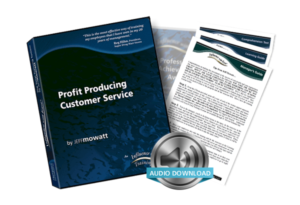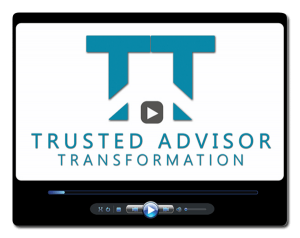Selling Techniques
5 tips for Getting in Front of Decision Makers
One of your biggest challenges in selling may be how to reach the actual decision making customer. When organizations bring me in to deliver my Trusted Advisor Selling© seminars I reassure participants that getting in front of the economic buyer is relatively simple when you keep in mind these 5 tips.
Tip #1 – Start Higher up the Ladder
The higher you start up your customer’s the chain of command, the more likely you are to reach someone with the authority to say yes. Unfortunately, sales reps often settle for easier to reach lower level managers who aren’t authorized to make significant operational changes or large purchases. In other words, in order to say yes to your offering, they’d have to ask a higher-up for permission. They are however, empowered to say no. So, it makes sense to start with job titles of people with buying power such as Regional Managers or Division Vice Presidents. They may redirect you to talk with someone lower. But then at least you’d have their permission – and tacit endorsement – to do so.
Tip #2 – Skip Small-Talk and Puffery
The three quickest ways to annoy senior managers: waste their time, feign familiarity, or look like you’re hiding something. A poor way to start a phone conversation: “Hi Mary, how are you today?” Their response will likely be terse or worse. Instead use: “Hi Mary, my name is (first name and last name), I’m with ABC company based out of (location). We haven’t met yet. The reason I’m calling is…” No small talk. Introduce yourself fully. Get to the point.
Tip #3 – Communicate Distinctive Value
Most upper level managers don’t answer phone calls from strangers. Still, you’ll have more impact getting a manager’s attention with a phone call then by sending an email that gets buried or filtered to junk. Ditto with trying to Direct Message them via social media. A phone call gives the advantage leaving a voice mail, followed-up with email. That means you need a compelling reason for them to want to explore this further. So before you dial, you need to know the distinctive value you can bring to their company. Keep in mind you may need to leave this as a voice mail message.
Stating you’ve been established for 30 years and your team members are experienced is not compelling. What managers want to know is the ultimate benefit of your offering, how it’s different than your competitors, and evidence that you deliver on these benefits. So your voice mail message might be, “The reason I’m calling is we’ve developed a way to (share benefit). I’m wondering if this is something that might possibly be a fit for your company. It’s different from conventional approaches in that (briefly describe what’s unique). As a result we’ve had companies like yours such a ABC Corp reduce costs by x% within 6 months. I’m wondering if you’d be open to a short conversation to see if this might create similar results for your firm. I’ll email you an example. In case it goes to your junk box I’m sending it at 2pm and my email address is… I’ll put this is my calendar to follow-up with you on date and time. If you’d like to reach me in the meantime my direct phone number is…
Tip #4 – Follow-up, Follow-up
Send the email, and follow-up by phone as promised. If you reach their voicemail again, then reference your last phone call and email, and add, “I’m guessing this isn’t a good time for you. So, I’ll call back day and time. Meanwhile my phone number is …”
Phone later as promised. If they still don’t respond then leave a voice mail and email again asking frankly if this is of any interest, or if there someone else in the organizations who takes care of this area who it would make more sense for you to connect with.
Tip #5 – Help Employees to Help You
Those times when managers send lower level employees to collect your info and prices, you need to be diplomatic. There’s no way that person – who’s only gathering info for some higher-up – will convey your value the way you can. So, don’t send prices or brochures. Ever. Instead, explain that you’ll be happy to provide pricing/ options but there are a number of variables you’ll need to ask about to determine accurate pricing. Suggest a virtual meeting and ask, “Is there anyone else involved in this project who it would make sense to invite (aka their boss), so we can make sure we don’t miss any critical issues?” They can always say no, but you at least extended the offer without causing offence.
Bottom line: Many potential sales are lost when reps either start too low down their customer’s chain of command, or they give up too soon. Remember – it’s just a phone call or email. I hope these tips make it easier and more profitable for you and your team members. Let me know if I can assist.
By Jeff Mowatt (original content – not AI generated)
Was this helpful? For additional information on this topic: How to Sell or How to Up-sell, Cross-sell and Gain Referrals
You’ll find more of Jeff’s Trusted Advisor Customer Service tips or subscribe to receive a new Business Building Tip every two weeks.
Curious about Jeff’s training resources? Click on Shop for details. If you’re interested in a customized presentation for your organization, contact Jeff at [email protected]
Jeff Mowatt is a customer service speaker, customer service training professional, award-winning speaker, and best-selling author.
Other related products:
 How to Deal with Difficult People – Whether at work or at home, a difficult person can make your life miserable. The emotional distress caused by an unpleasant customer, co-worker, or even family member can leave you feeling drained. Sometimes it feels like you’re the only one making an effort. When what you try doesn’t work you may find yourself wanting to escape. What if there was a better way to prevent and resolve conflicts?
How to Deal with Difficult People – Whether at work or at home, a difficult person can make your life miserable. The emotional distress caused by an unpleasant customer, co-worker, or even family member can leave you feeling drained. Sometimes it feels like you’re the only one making an effort. When what you try doesn’t work you may find yourself wanting to escape. What if there was a better way to prevent and resolve conflicts?
Jeff’s besting selling book, Influence with Ease – You already know that whatever your message, customers and coworkers are persuaded – not by your title – but by how much they trust you. Jeff shares 30-second tips that strengthen trust in virtually all of your communications.

Jeff’s self-study training kit “Profit Producing Customer Service” this training package reveals how employees can provide REMARKable service in all areas related to customer service.

For more in-depth training the Trusted Advisor Transformation course is 15 minutes a day for 7 days, which means you can view an entire module over a coffee break. It’s all done with online videos you can view anytime, anywhere on your desktop or mobile device. All you do is watch the videos and apply the concepts.


